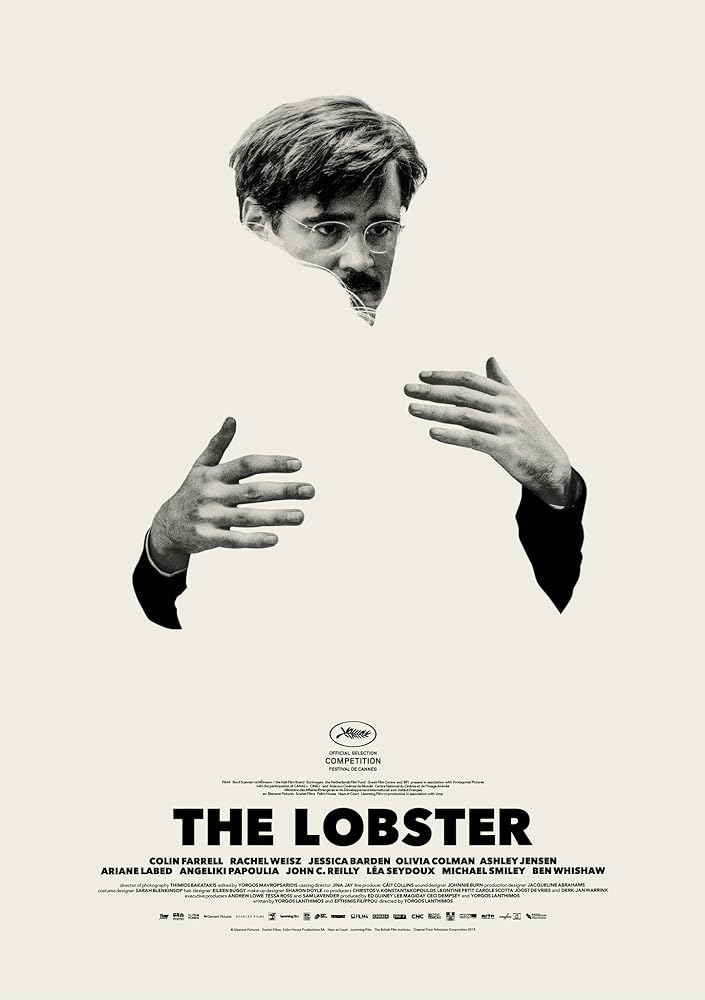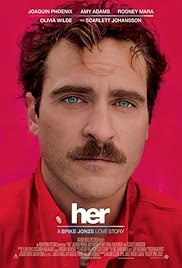
The Lobster: Colin and invisible friend
Yorgos Lanthimos’ The Lobster, released in the US in 2016, is one of the most original films I’ve seen in years. I shouldn’t have been surprised since that same director also created the bizarre Dogtooth in 2009. It received an award at Cannes, an Oscar nomination, and 89% on Rotten Tomatoes. Yet I had mixed feelings about it. Although it’s thought-provoking, watching it was frustrating at times.
The film’s premise is strange. Its setting is a world much like ours, except that being single is in effect illegal. Anyone who becomes divorced or widowed is taken by the authorities to a special resort with others of their kind. Here they must find a new mate within 45 days. If they fail, they will be surgically converted to an animal of their choice. The protagonist, David, played by Colin Farrell, has chosen to be a lobster – an exemplary, unusual selection. Too many people, David’s counselor explains, choose a mundane animal like a dog. This was the fate of David’s brother Bob, who is now his pet.
You might assume, as I did, that in this situation, people would hook up with just about anyone; yet they are irrationally picky. All believe that couples must have at least one common trait. David’s friend John (Ben Wisham) takes a fancy to a girl who gets frequent nosebleeds (Jessica Barden), so he repeatedly injures himself to fake a similar condition. Robert, the lisping, autistic fellow (played hilariously by John C. Riley) doesn’t have a prayer.
Many singles try to escape, and resort attendees are forced to hunt them down with tranquilizer guns. Each captured escapee extends the capturer’s 45-day grace period, but one particularly aggressive woman (Angeliki Papoulia) bags most of them. After a brief, disastrous fling with her, David flees to the woods, where he joins an underground group of fellow loners. This is also the home of random animals such as camels, peacocks, and hogs. All, we assume, are former humans.
Here David meets his true love, a fellow runaway (Rachel Weisz.) Since both are myopic, they are compatible. Unfortunately, the society of the loners forbids intimate relationships on pain of mutilation. The lovers secretly plan their escape back to the city, but meet with the treachery of the group’s leader (Lea Sedoux). The ending is either a triumph of love, a tragic farce, or both.
On the surface, Lanthimos appears to be saying that society is geared around couples to the detriment of singles. To me, the more interesting aspect was the self-defeating behavior of the singles – passive, unconfident, and exceptionally picky. Farrell’s low-key performance was perfect in this regard. The culture of the society of loners was an astute comment on today’s disconnected alienated society. The scene where everyone dances separately to techno music, each listening to his own headphones, was quite striking. On the downside, I found the message to be so obvious and relentless to be tedious at times. Still, I have to give it high marks for originality. I’d give it 3.5 stars out of 5.
Speaking of weird animals, check out my sci-fi short story “Found Pet,” only 99 cents on Amazon.

